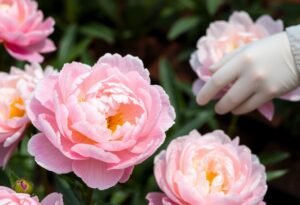Essentials of a Small Japanese Garden
The key elements defining a small Japanese garden include stones, water, greenery, and light. Stones symbolize mountain peaks, while water represents rivers and lakes. It’s crucial to maintain a natural and uncontrived layout of these elements, allowing the garden to become a space for meditation and reflection.
Choosing the Right Plants for Your Japanese Garden
Plant selection plays a significant role in arranging a small Japanese garden. Commonly featured are conifers such as pines and cypresses, but consider integrating azaleas or bamboo for an exotic feel. Aim to choose plants with varying shapes and colors to maintain balance and harmony.
The Role of Water in Your Garden
Water is a fundamental element in Japanese gardens. It can take the form of a small pond, fountain, or stream. A small Japanese garden featuring water acquires a unique ambiance and becomes an ideal relaxation spot. The sound of flowing water has a soothing effect on the mind and senses, promoting meditation.
Pathways and Architectural Elements
In Japanese gardens, well-thought-out paths leading to various zones are crucial. A small Japanese garden should feature pathways composed of natural materials like wood or stone, inviting a sense of peace. Small architecture like gazebos or pergolas serves as wonderful spots to relax and unwind.
Lighting for Your Japanese Garden
Proper lighting is an essential feature of a small Japanese garden. Lanterns and discreet light points create a magical atmosphere after dusk. Lighting should be soft, enhancing the natural beauty of the surroundings without disturbing the harmony of the space.
Maintaining Balance in Your Garden
Key to Japanese gardening is the concept of “wabi-sabi,” which embraces natural imperfections. A small Japanese garden should be a space where nature governs and humans only gently intervene. Regular pruning and cleaning help maintain this serene space in tip-top shape.
Conclusion
Creating a small Japanese garden is not merely about beautifying a space; it’s about finding inner peace. By investing time and effort into your garden’s design, you’ll achieve a harmonious space where you can unwind. Follow these tips to create your oasis of tranquility today!
Disclaimer
This article is for informational purposes only and does not replace professional garden design advice.

















